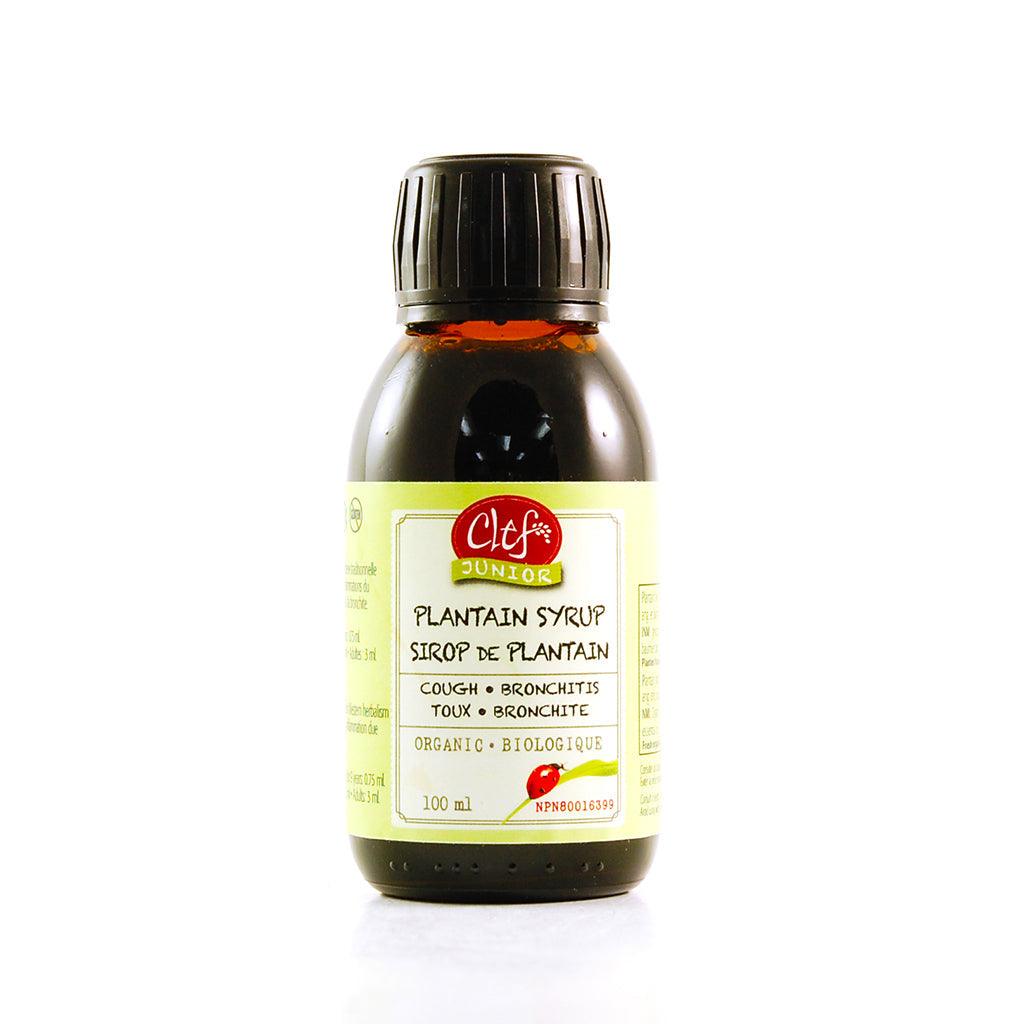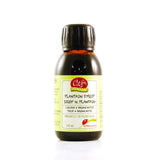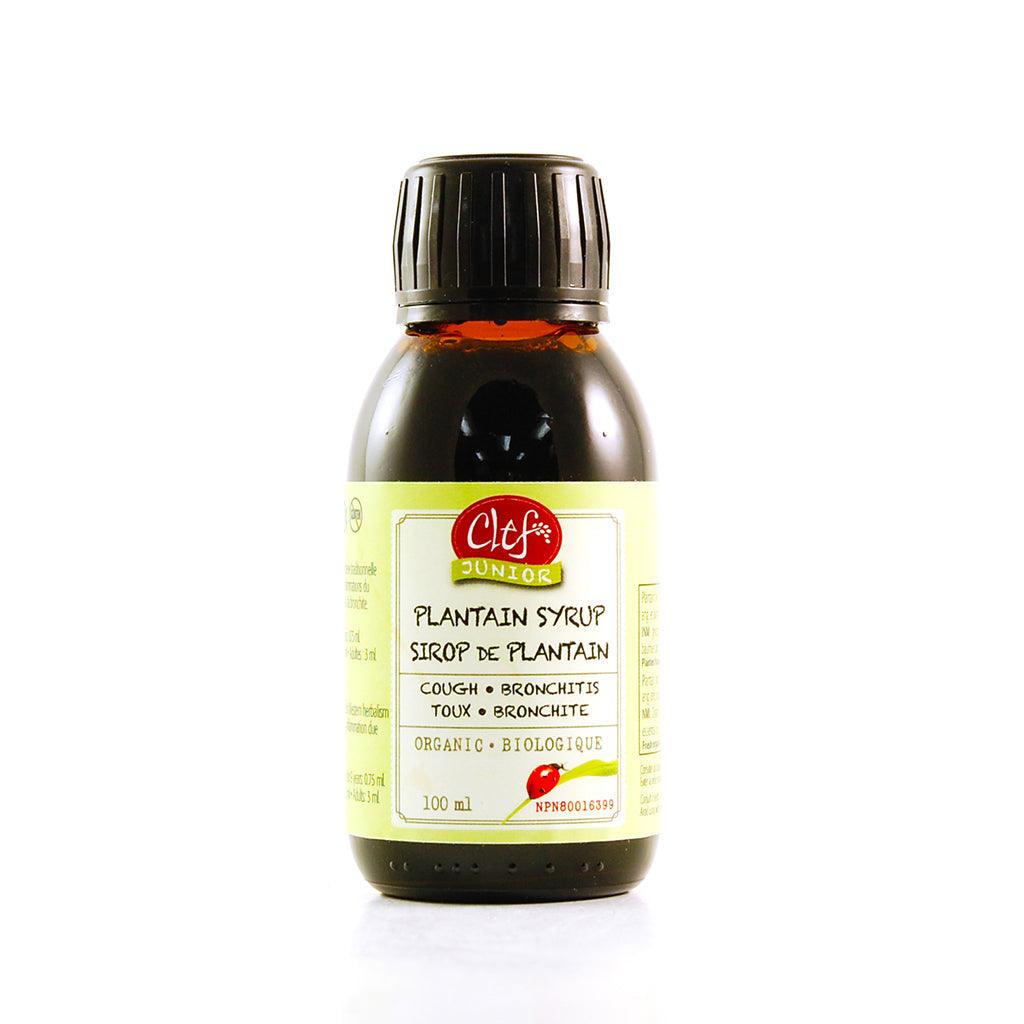

Plantain syrup
- 21.99$
- 21.99$
- Price per unit
- by
Syrup used in traditional herbalism to relieve coughs and inflammation of the respiratory system associated with bronchitis.
Preparation
- Blend of simple glycerides from fresh organic plants
- Preparations are brewed daily for 30 days, pressed and sieved
- No additives, colorants or preservatives
- No added sugar, gluten-free, soy-free, non-GMO, non-irradiated
Format
- Amber glass bottle with dropper - 100ml
Indications
Respiratory system Respiratory tract inflammation, cough, sore throat, tonsillitis, laryngitis, influenza, asthma, bronchitis, pneumonia, pleurisy.
Mode of action
A blend of glycerides to soothe coughs and heal inflammation of the respiratory tract; this syrup softens the vocal cords, reduces the pain associated with sore throat, fights infection and cures irritation. It is used when the throat is irritated and inflamed, when bronchial tubes are congested and irritated, and when coughs are violent, dry or oily.
Essential oils or tinctures designed for these particular conditions can be added. It can be used diluted or undiluted: dilute it to enhance its antitussive properties, or take it undiluted for a better antibacterial or antiseptic effect.
Favorable associations
PULMONATHÉ infusion for persistent coughs, bronchitis and inflammation of mucous membranes. Drink 1 liter a day.
MOLENA infusion for respiratory system disorders. Drink 1 liter a day. Strain well.
SINUSITHÉ or GRIPPETHÉ in infusion or capsules in cases of profuse discharge, sinusitis. Take 1 to 3 capsules, 2 or 3 times a day, or drink 1 to 3 cups of Grippethé a day.
SUREAU infusion for fever, flu and viral infections. Drink 1 to 3 cups a day.
HYDRASTIX tincture for resistant infections. Take 10 to 30 drops as needed.
BRONCHIX, alternating with SIROP PLANTAIN, for coughs, irritation, throat and pharynx infections, bronchitis and laryngitis. Take 10 to 20 drops, 1 to 3 times a day.
Blend synergy
Lanceolate plantain is a healing plant with a powerful affinity for the respiratory tract. In Europe, a plantain-based cough syrup has been made for generations. Echinacea fights infection.
Although very similar in action, there are differences between purple echinacea, which is more bactericidal, and narrow-leaved echinacea, which is more tonic for the immune system. A combination of these two species gives optimal results. Echinacea is used for all types of infection, whether viral or bacterial.
Echinacea has a tonic effect on the immune system, promoting the body's normal defense reactions. Marshmallow soothes coughs and respiratory tract irritation. The queen of emollients, it acts directly on the epithelial cells of the respiratory tract.
Its mucilage forms a protective layer, and it is used in all conditions where there is dryness, irritation or inflammation of the mucous membranes.
Mullein reduces excessive secretions from the respiratory tract and promotes gas exchange. A diaphoretic plant, it helps open up the respiratory tract. Fir essential oil acts as an expectorant and respiratory tract tonic. Its active, tonic action is appreciated here, balanced by the emollient and nutritive plants that make up the syrup base.
Certification
Certified organic under independent control (Ecocert Canada). Manufactured under Good Manufacturing Practices (Health Canada's Natural Health Products Directorate).
References
1 Mc Guffin Michael et al. Botanical Safety Handbook. Boca Raton: CRC Press; 1997.
2 Blumenthal, Goldberg, Brinckmann. Herbal Medicine: Expanded Commission E Monographs. Newton: Integrative Medicine Communications; 2000.
3 Hoffman David. The Herbal Handbook: A User's Guide to Medical Herbalism. Rochester: Healing Arts Press; 1988.
4 Chevallier, Andrew. Encyclopedia of Medicinal Plants. Montreal: Reader's Digest Selection, 1997.
5 Bruneton Jean. Pharmacognosie: Phytochimie-Plantes Médicinales. Paris: Technique et Documentation; 1993.
6 Barnes J., Anderson L.A., Phillison J.D.. Herbal medicines. Second Edition. London (UK): Pharmaceutical Press; 2002.
7 Millspaugh Charles F. American Medicinal Plants. New York: Dover Publications; 1974.
8 Who. WHO monographs on Selected Medicinal Plants. Volume 1. World Health Organization. Geneva; 1999.
9 Blumenthal, Mark. The ABC Clinical Guide to Herbs. Austin: American Botanical Council. 2003.
10 Winston David, Kuhn Merrily A. Herbal Therapy & Supplements. Philadelphia: Lippincott; 2000.
11 Chandler Frank. Herbs-Everyday Reference for Health Professionals. Ottawa: Canadian Pharmacists Association; 2000.
12 Leung Albert Y., Foster Steven. Encyclopedia of Common Natural Ingredients Used in Food, Drugs and Cosmetics, 2nd edition. New York: Wiley-Interscience Publication; 1996.
13 Wichtl Max. Herbal Drugs and Phytopharmaceuticals. Stuttgart: Medpharm Scientific Publishers; 1994.
14 Bradley Peter R. British Herbal Compendium.Volume 1. Bournemouth: BHMA; 1996.
15 Duke James A. The Green Pharmacy. Emmaus: Rodale Press; 1997.
16 Moerman Daniel E. Native American Ethnobotany. Portland: Timber Press; 1999.
17 ESCOP. Monographs on the Medicinal Uses of Plant Drugs. Exeter: Centre for Complementary Health Studies; 1996.
18 Felter H.W., Lloyd J.U. King's American Dispensatory. Sandy: Eclectic Medical Publications; 1983. Volume 2.
Related products
Recently viewed products
- Choosing a selection causes the entire page to be updated.


